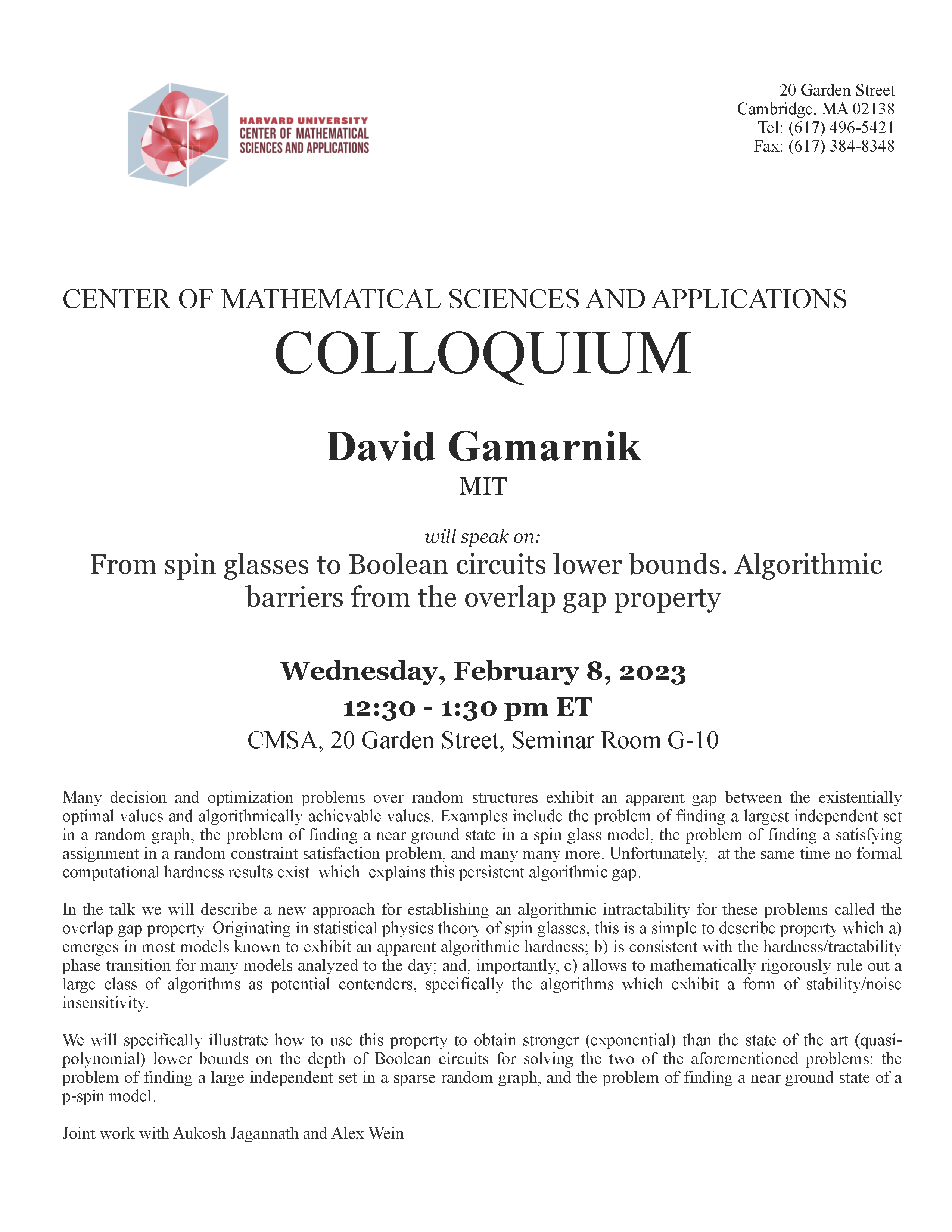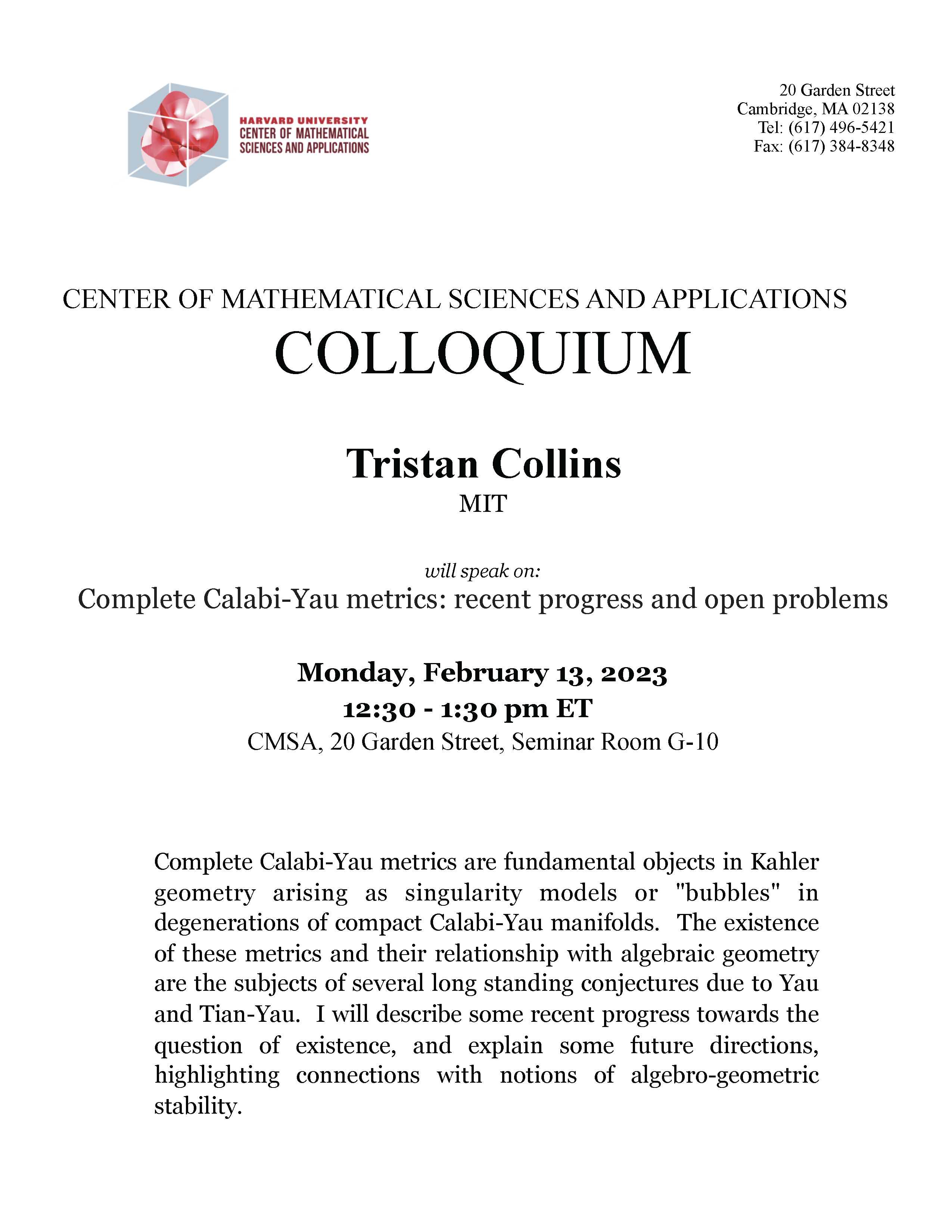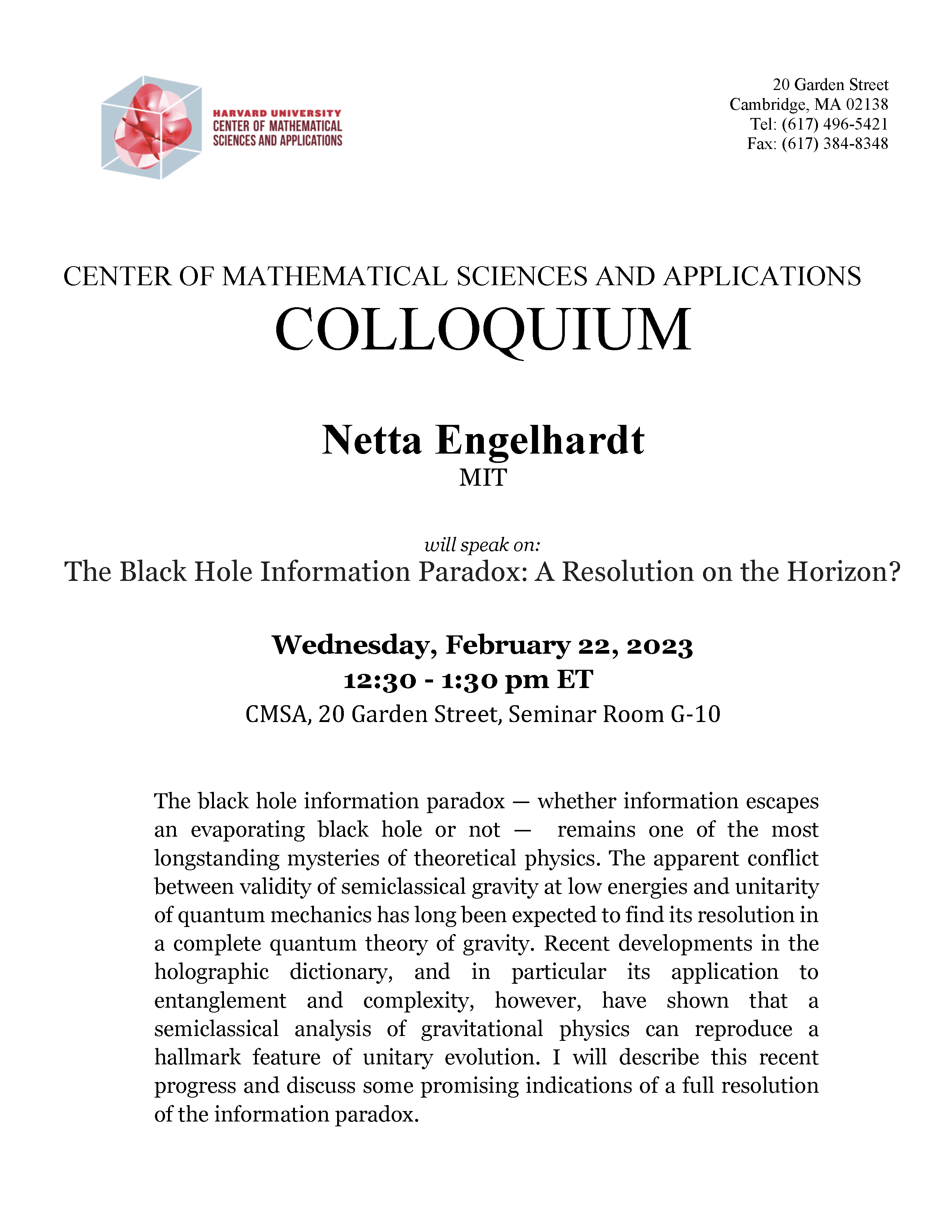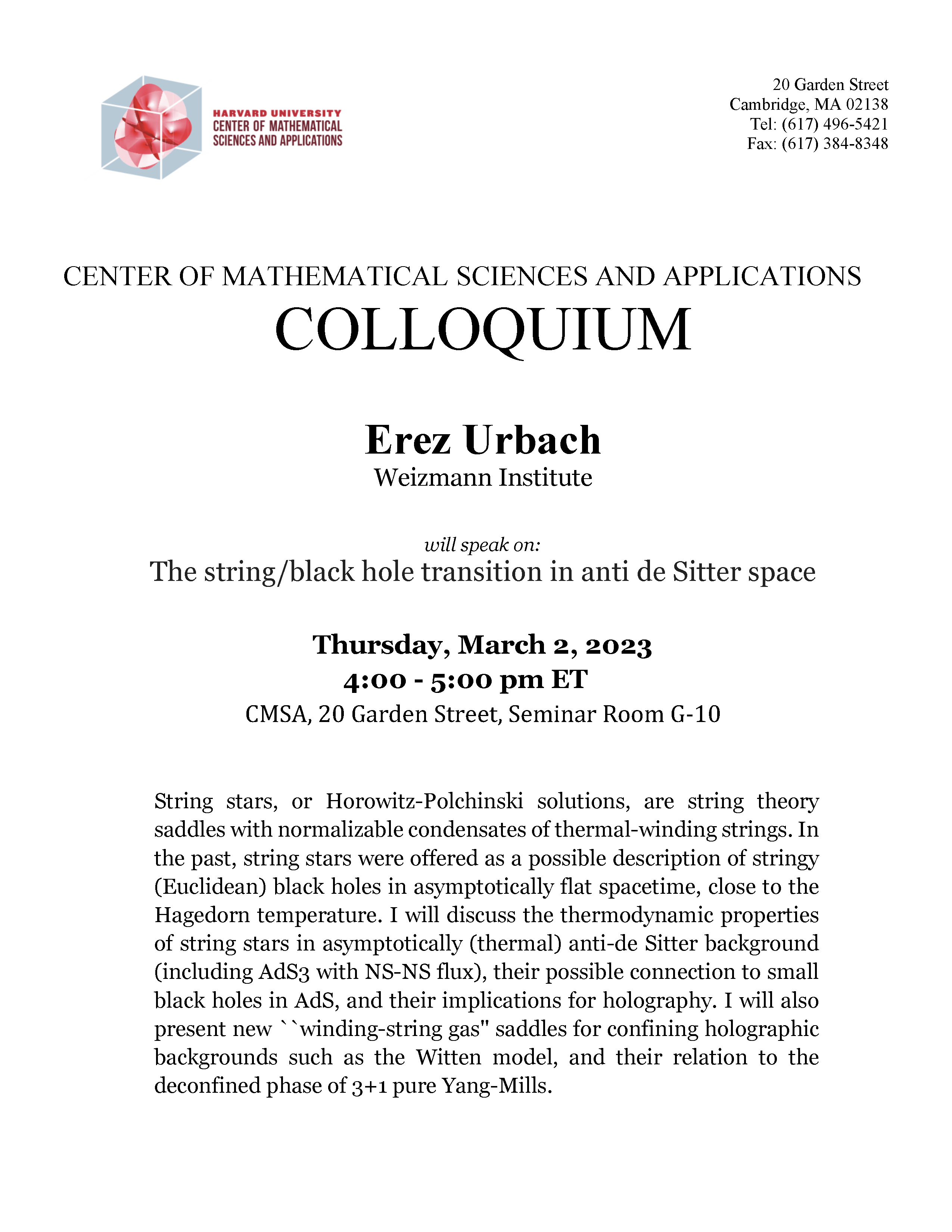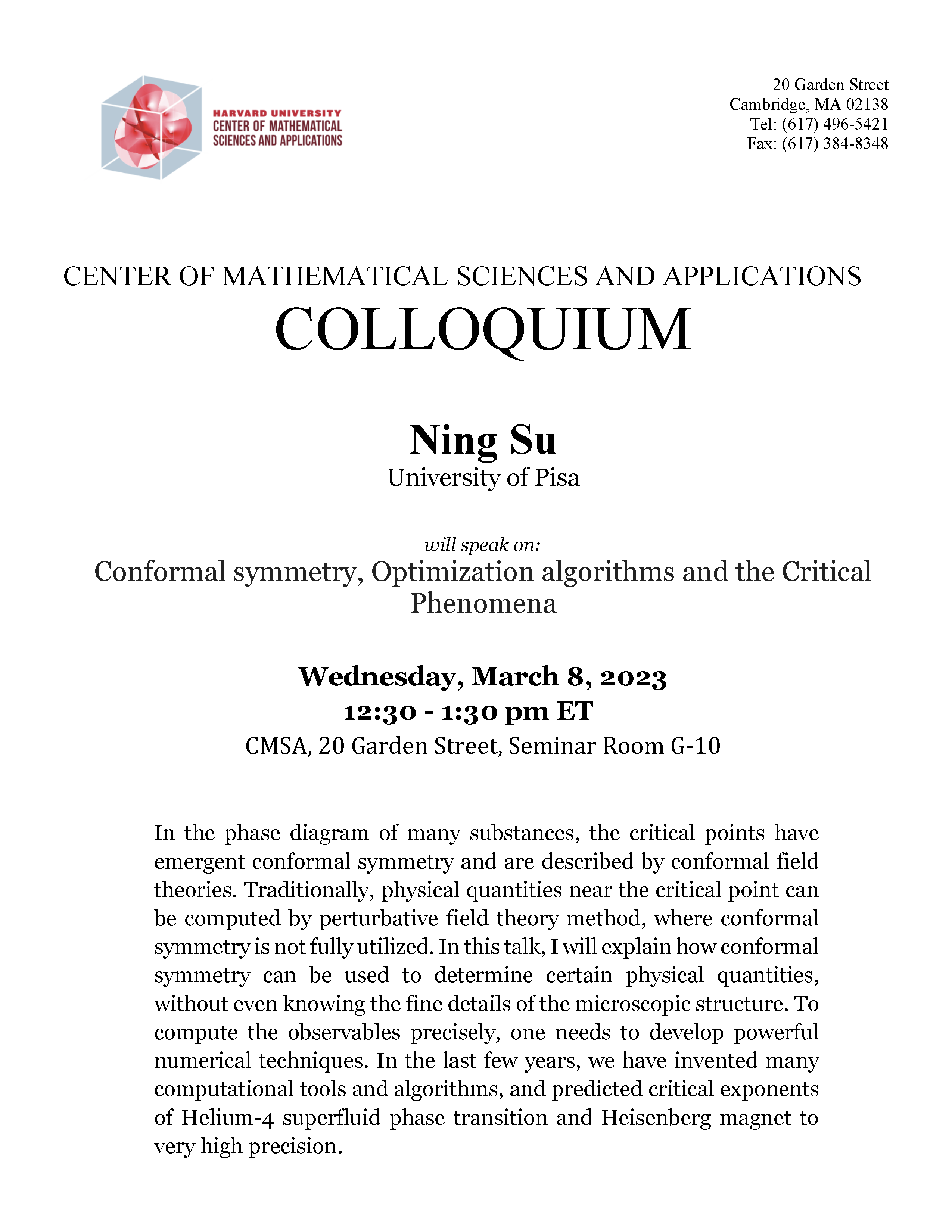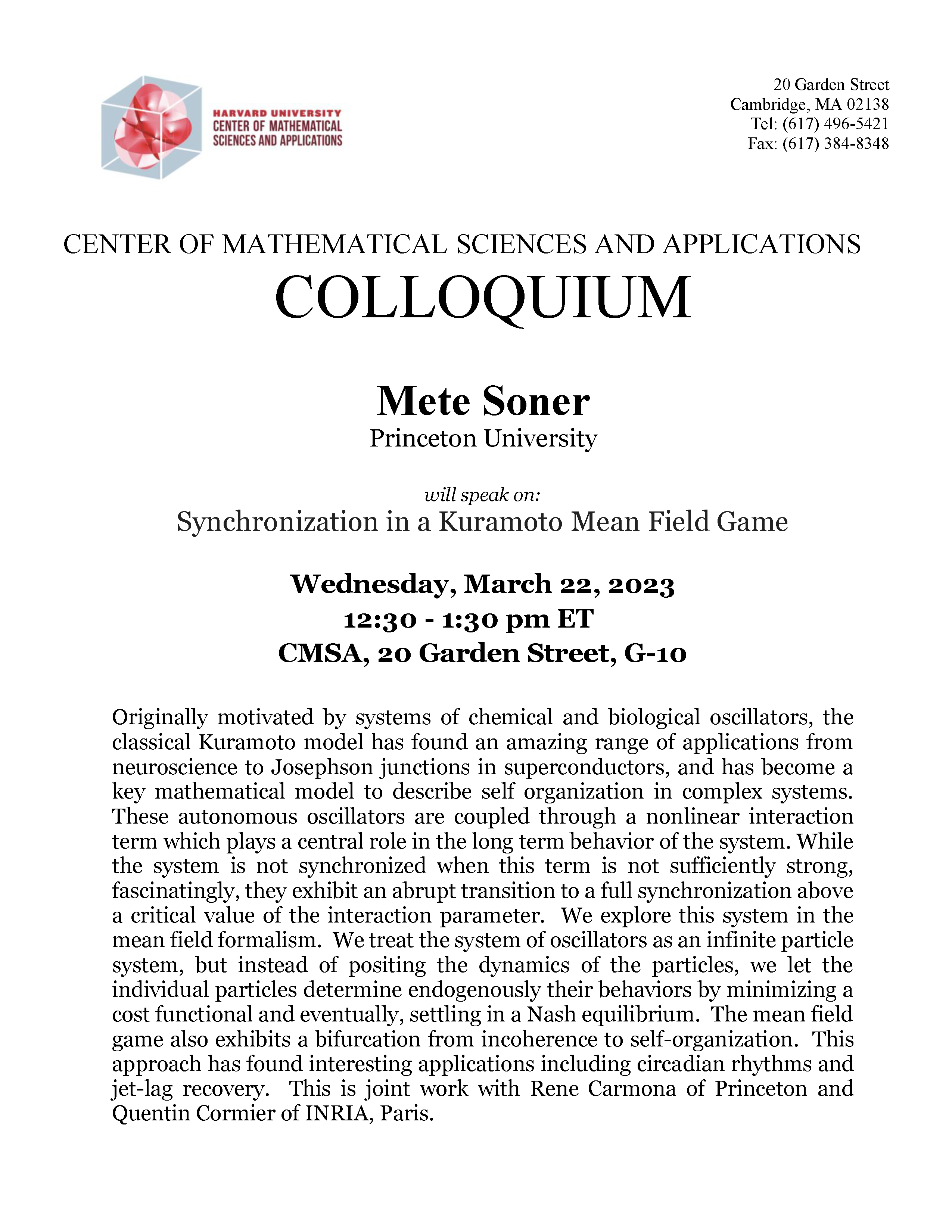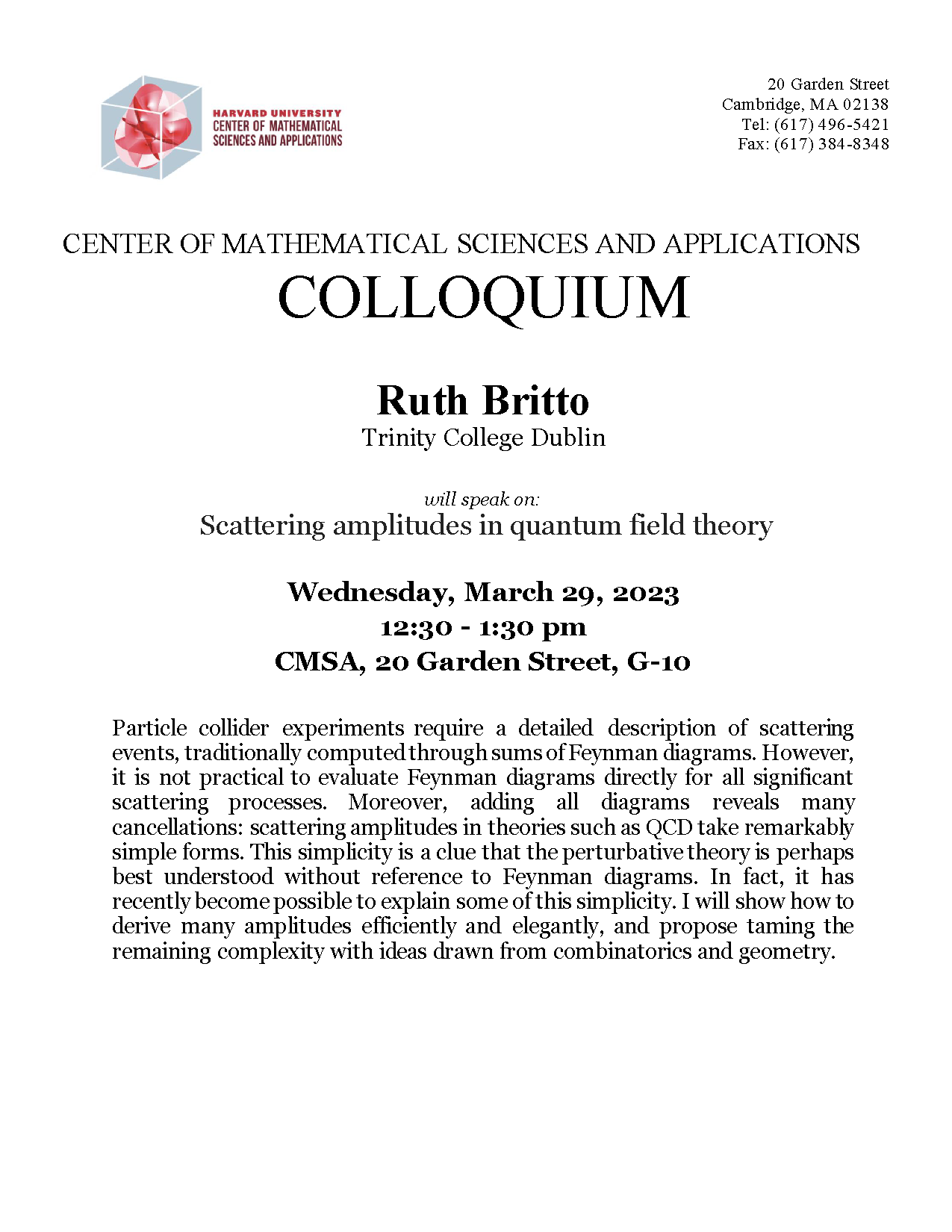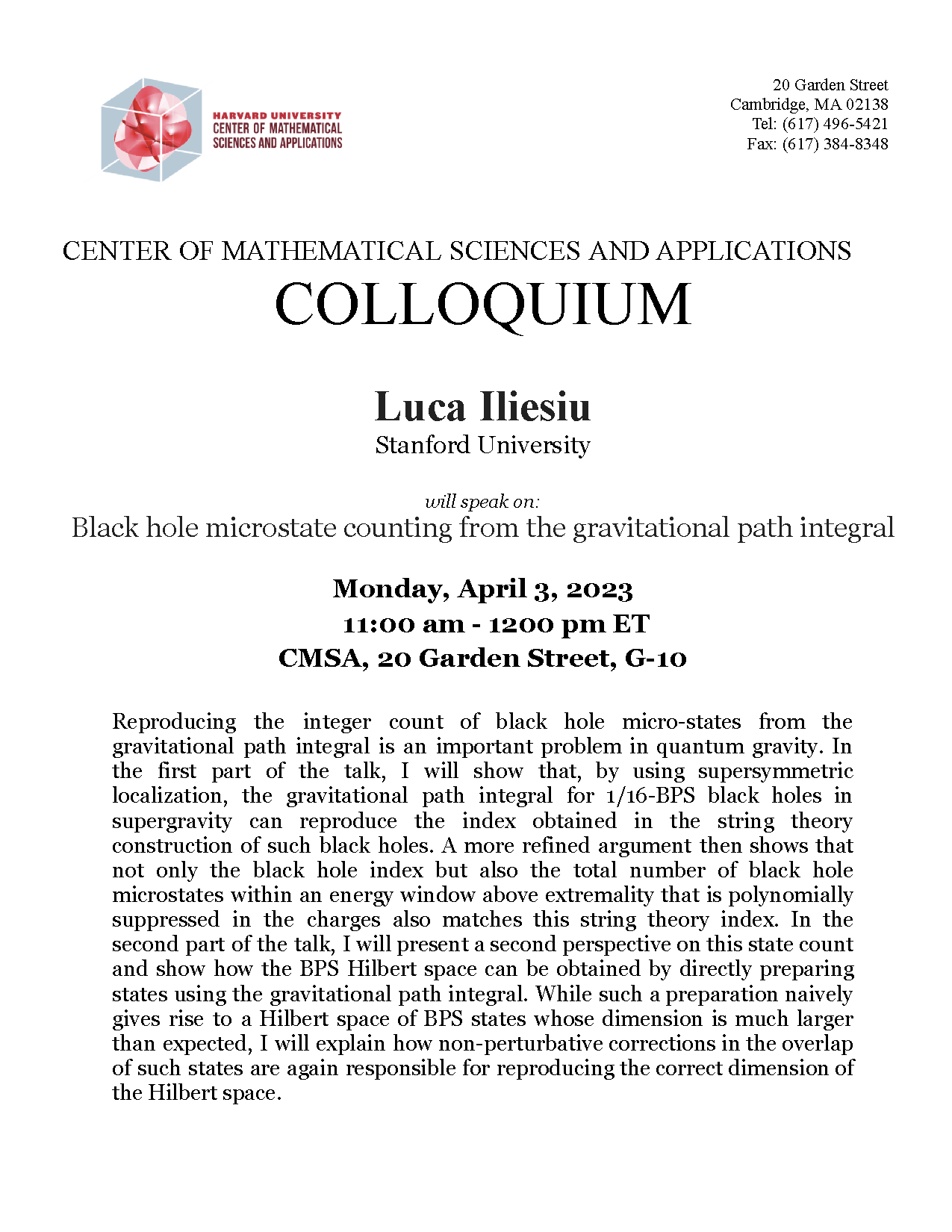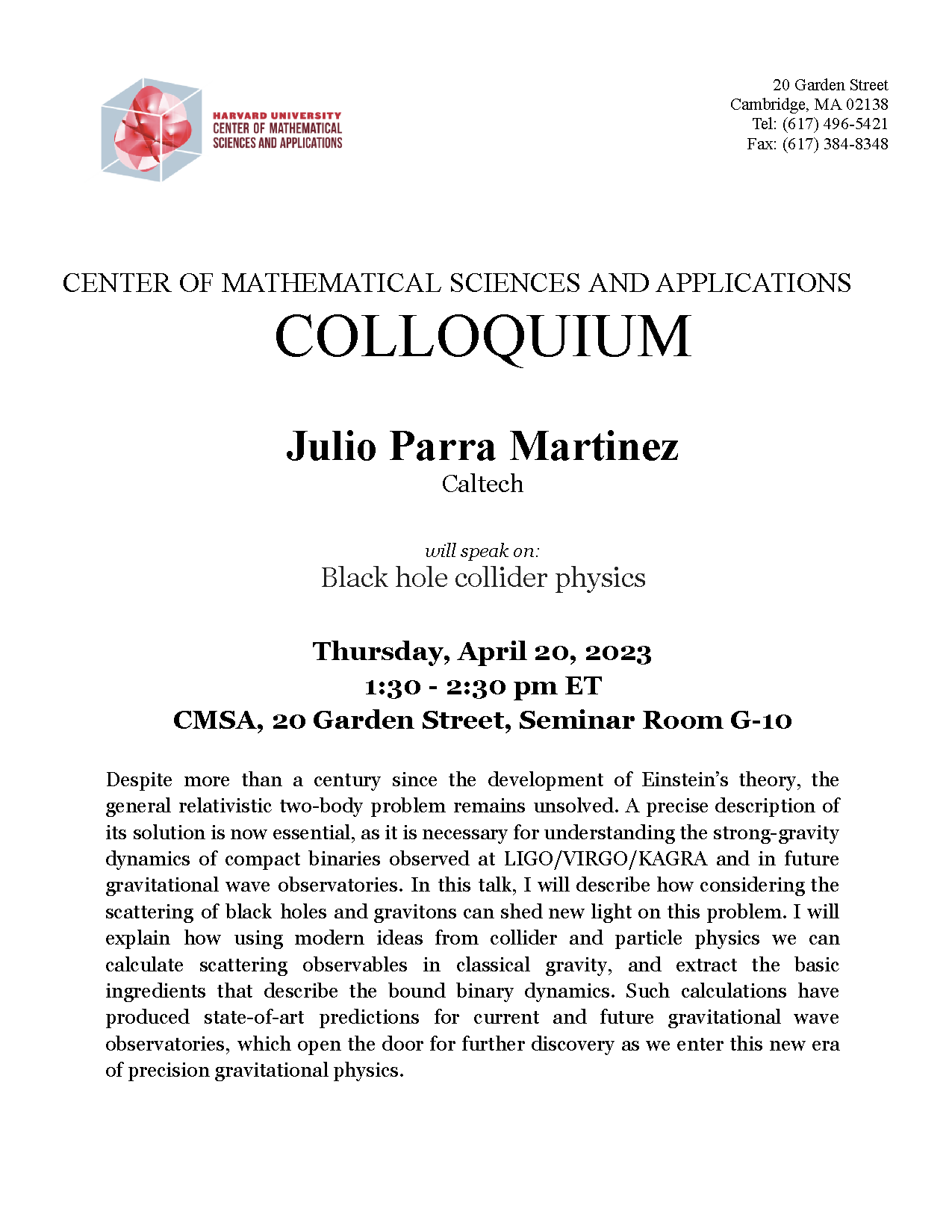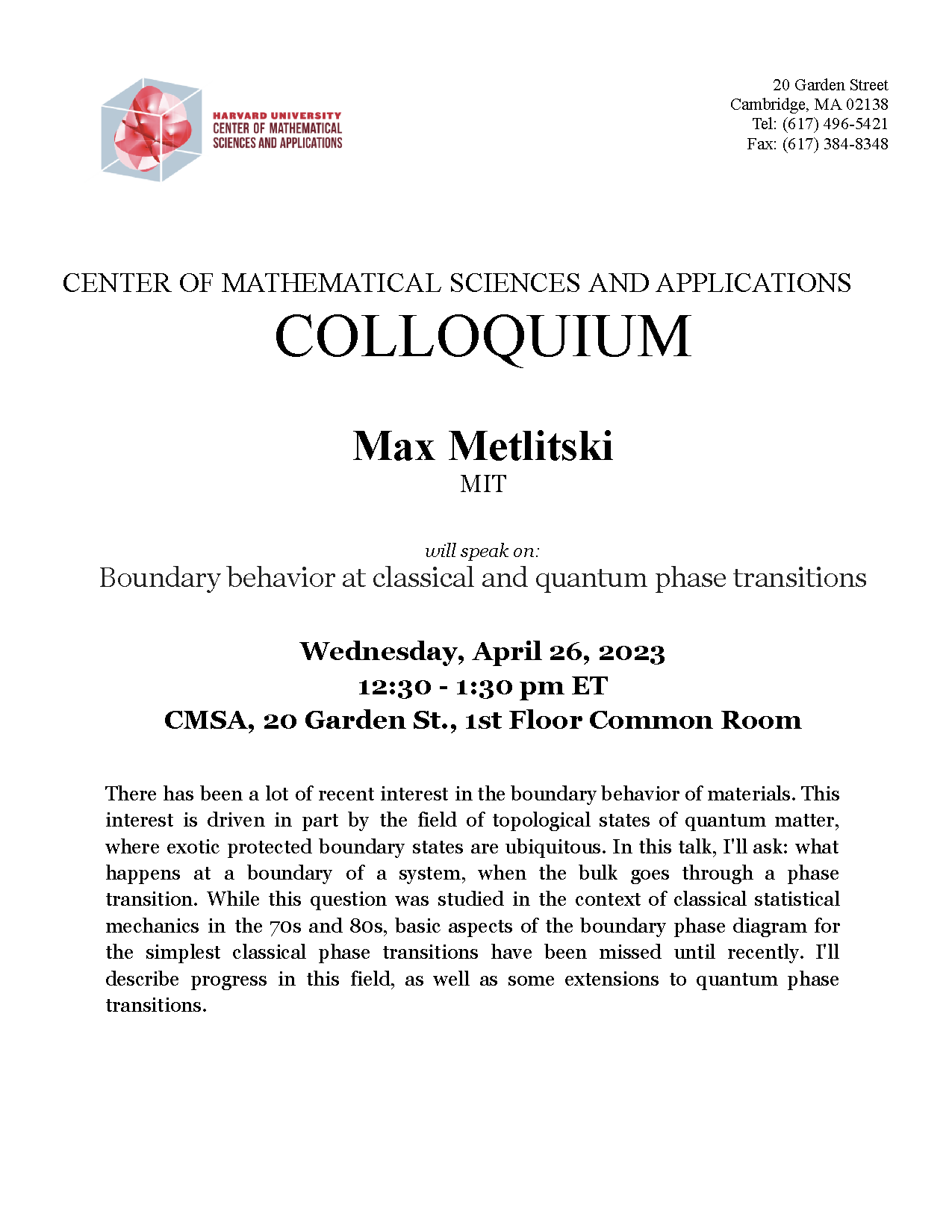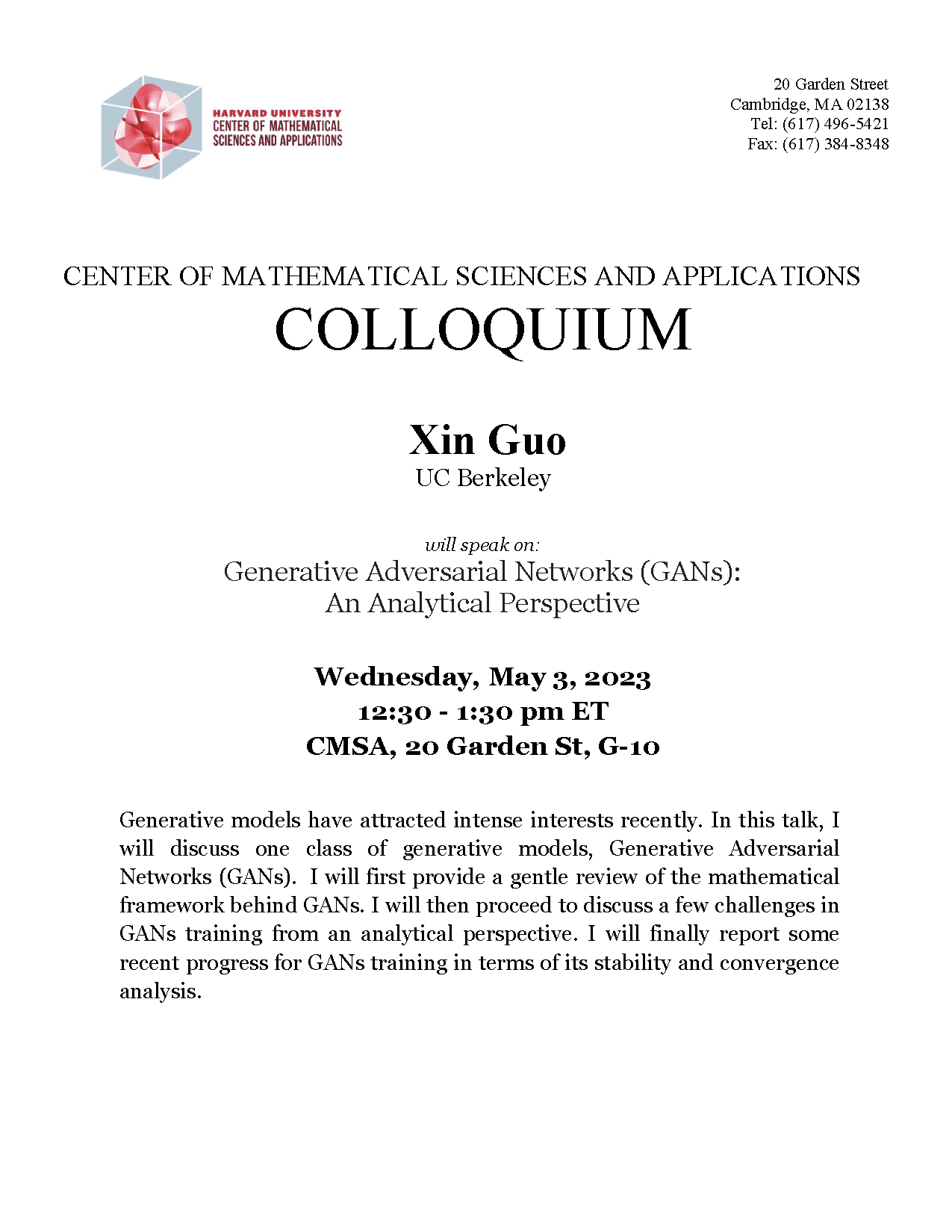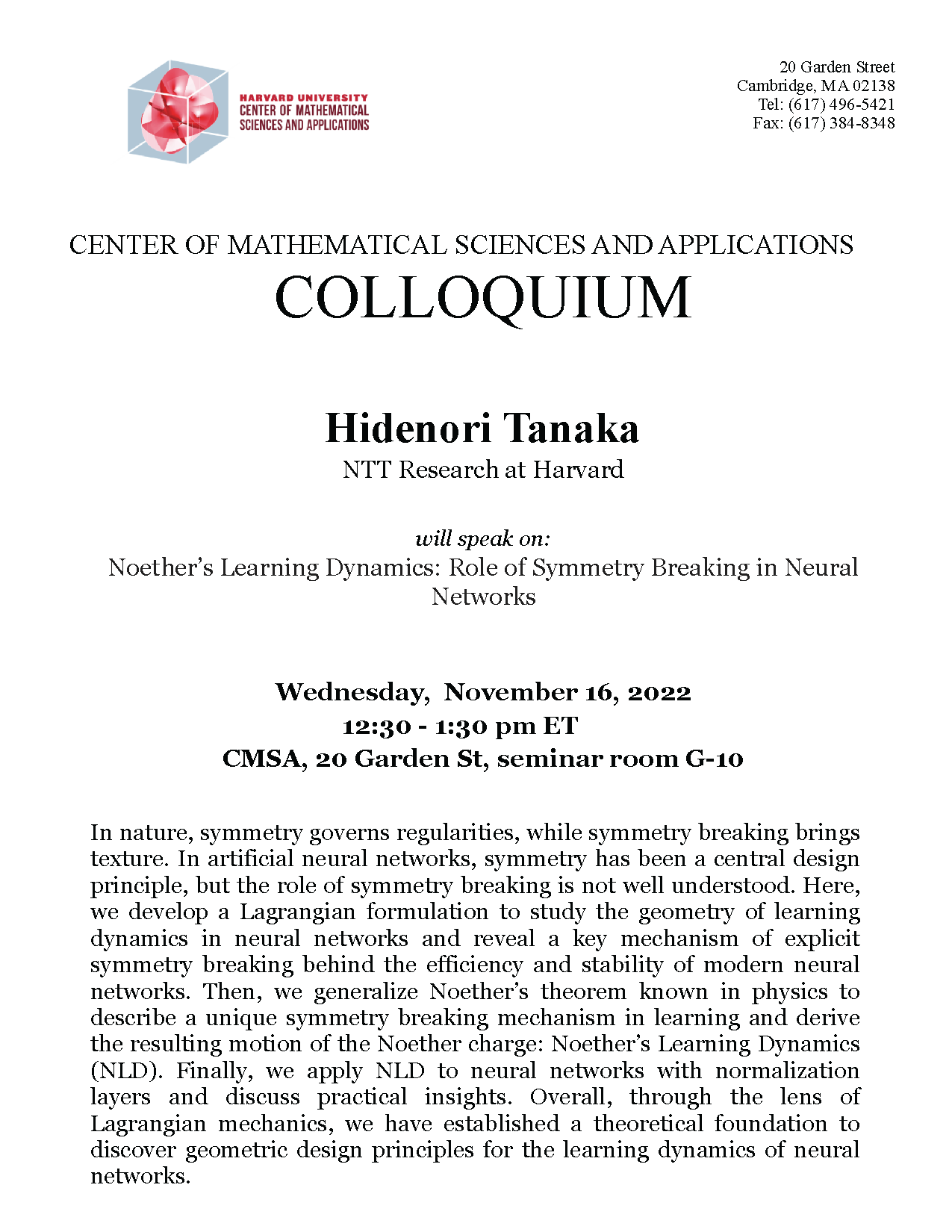
Noether’s Learning Dynamics: Role of Symmetry Breaking in Neural Networks
CMSA Room G10 CMSA, 20 Garden Street, Cambridge, MA, United StatesColloquium Speaker: Hidenori Tanaka (NTT Research at Harvard) Title: Noether’s Learning Dynamics: Role of Symmetry Breaking in Neural Networks Abstract: In nature, symmetry governs regularities, while symmetry breaking brings texture. In artificial neural networks, symmetry has been a central design principle, but the role of symmetry breaking is not well understood. Here, we develop a […]

